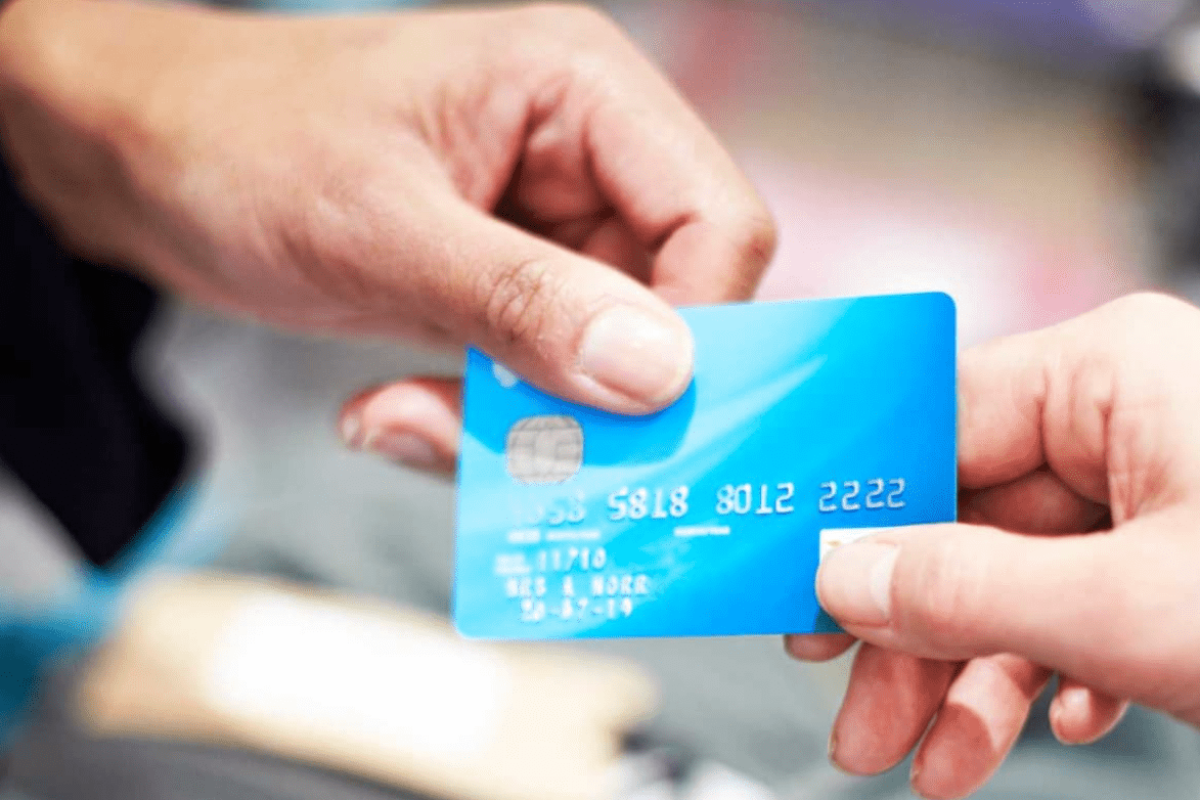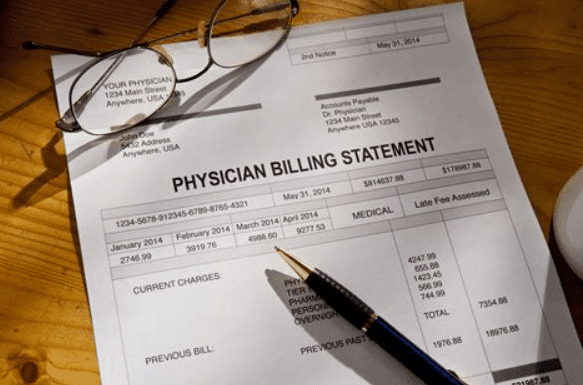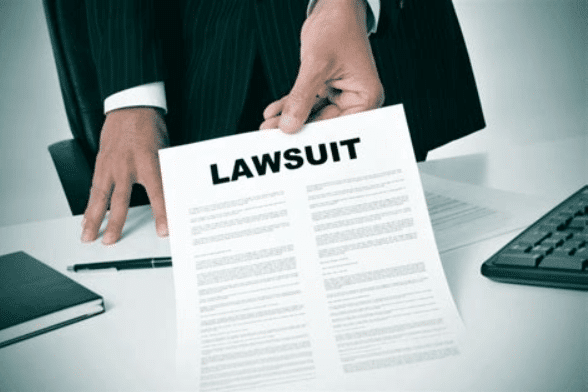If you’ve been sued for a debt by American Recovery Service, use ZumaZip to respond in just 15 minutes and win your lawsuit.
Receiving incessant phone calls and intimidating letters from a debt collection firm like American Recovery Service can undoubtedly induce stress and anxiety about your financial future. It’s a distressing experience, especially when you’re not prepared for such aggressive tactics.
However, it’s crucial not to let the harassment overwhelm you. You have legal rights and protections in place when dealing with debt collectors like American Recovery Service. It’s essential to assert these rights and not allow yourself to be bullied into submission.
Moreover, if American Recovery Service has taken legal action against you to recover an alleged delinquent debt, there are affirmative defenses you can leverage. These defenses could significantly bolster your position in court and potentially lead to a favorable outcome in your case.
With ZumaZip you can make the right affirmative defenses the right way.
What Exactly is American Recovery Service and Why are They Suing Me?
American Recovery Service may seem like a mystery when you’re served with a lawsuit bearing their name, especially if you’ve never dealt with them before. Many find themselves in this situation, unsure why they’re being sued by a company they’ve never heard of. If you’re in this boat, you’re not alone. Here’s a bit of background to shed light on American Recovery Service:
American Recovery Service is a debt collection agency headquartered in California. Established in 1986, their primary focus is on sending demand letters and pursuing debt collection. Over the years, they’ve gained notoriety for their aggressive tactics in debt recovery, which have led to legal action from consumers alleging violations of the Fair Debt Collection Practices Act.
Their approach has sparked numerous lawsuits, highlighting concerns over their practices. So, if you’re facing legal action from American Recovery Service and you’re unfamiliar with them, it’s essential to understand your rights and options moving forward.
ZumaZip makes it easy to win a debt collection lawsuit.
Questionable Debt Collection Tactics Commonly Used by American Recovery Service
Here’s a general overview of some concerning tactics that debt collectors, representing American Recovery Service, have been known to use when communicating with consumers:
- Using inappropriate or vulgar language during phone conversations.
- Making calls before 8:00 a.m. or after 9:00 p.m., violating permissible calling hours.
- Issuing baseless threats, such as damaging your credit or threatening arrest without legal grounds.
- Contacting consumers at their workplace, potentially causing embarrassment or disruption.
- Engaging in excessive communication, including multiple calls per day or week.
If you’ve experienced any of these tactics during interactions with American Recovery Service, you may have grounds to pursue legal action against the company, potentially resulting in compensation for damages incurred.
You Have Rights and Protections Under the Fair Debt Collection Practices Act
You’re empowered with rights and protections under the Fair Debt Collection Practices Act (FDCPA). This federal law, established in 1977, serves as a shield against harassing and coercive tactics employed by debt collectors in their pursuit of overdue payments. The FDCPA grants consumers a set of rights and legal safeguards, including the ability to:
- Dispute a debt and opt for no further communication from collection agencies.
- Instruct debt collectors not to contact them at their workplace if such calls contravene employer policies.
- Demand validation of the debt’s existence and the collector’s authorization to seek payment.
- Have legal representation in debt resolution proceedings.
These provisions ensure that consumers are treated fairly and ethically in debt collection practices.
Advice for Beating American Recovery Service in Court
If you find yourself facing a lawsuit from American Recovery Service, you’re likely seeking guidance on how to navigate the legal process effectively. Fortunately, there are steps you can take to enhance your chances of success in court. One crucial action is promptly responding to the Complaint, which can distinguish your case from others.
Typically, debt collection lawsuits commence with the debt collector, such as American Recovery Service, filing a Summons and Complaint outlining the alleged debt owed. Sadly, many consumers choose to ignore this Complaint, which can have serious repercussions. Ignoring it could lead to American Recovery Service seeking a default judgment from the Court, granting them certain powers, including:
- Garnishing your wages
- Placing a lien on your personal property, like your car
- Freezing the funds in your bank account
For instance, you may want to consider requesting that American Recovery Service provide evidence, such as documents, demonstrating the following fundamental points:
- Confirmation that you are indeed the individual accountable for repaying the purported debt.
- Documentation proving that American Recovery Service has the legal authority to pursue action against you.
- Verification of the precise amount stated in the Complaint that you are alleged to owe.
It’s essential to seek this evidence as it’s not uncommon for larger debt collection agencies to initiate legal proceedings against the wrong individual or to lack essential financial documentation establishing your liability for the alleged debt.
Additionally, it’s worth exploring the expiration of the statute of limitations as a potential affirmative defense. The statute of limitations delineates the timeframe within which legal action can be pursued against an individual or entity. If it becomes evident that American Recovery Service initiated the lawsuit after this timeframe elapsed, you may have grounds to file a motion for dismissal of the debt collection lawsuit. ZumaZip is available to assist you in navigating this process and in preparing the requisite documentation for submission to the court.
What is ZumaZip?
ZumaZip is a user-friendly web application designed to simplify the process of responding to a debt collection lawsuit. Here’s how it works:
- Step-by-Step Guidance: ZumaZip guides you through the process with a series of step-by-step questions. These questions are designed to gather all the necessary information required to complete your response to the lawsuit accurately.
- Completion of Answer Forms: Once you’ve provided all the relevant details, ZumaZip generates completed forms for your response to the lawsuit. These forms are formatted according to legal requirements and include all the information you’ve provided.
- Flexible Submission Options: After completing the forms, you have the flexibility to choose how you want to submit them. You can either print the completed forms and mail them to the courts yourself, or you can opt to use ZumaZip’s services to file the documents on your behalf. Additionally, ZumaZip offers the option to have an attorney review your completed document before submission, providing an extra layer of assurance and expertise.
In summary, ZumaZip streamlines the process of responding to a debt collection lawsuit by providing guided assistance, generating completed forms, and offering flexible submission options. Whether you prefer to handle the filing yourself or enlist ZumaZip’s assistance, the platform aims to make the process as convenient and efficient as possible.
Overview of What You Should Do If You are Taken to Court by American Recovery Service
If you find yourself sued by a debt collection company like American Recovery Service, here’s a helpful overview of what you should do:
- Do Not Admit Liability: Resist the temptation to admit liability for the alleged debt. Remember, it’s the debt collector’s responsibility to prove that you are indeed responsible for the amount owed.
- File Your Answer: Ensure that you file your Answer to the Complaint within the timeframe specified by the Court. Typically, you’ll have between 20 and 30 days to respond. Failing to file a response could result in a default judgment against you.
- Raise Affirmative Defenses: In your Answer, be sure to raise any applicable affirmative defenses. This could include asserting the statute of limitations or challenging the validity of the debt. By doing so, you shift the burden of proof back to American Recovery Service.
- Demand Proof: Demand that the debt collection company provide evidence to support their claims against you. This could include documentation showing that you owe the specific amount alleged in the Complaint.
By following these steps and employing strategic defense strategies, you can effectively challenge American Recovery Service in court. Remember, you have rights as a consumer, and it’s essential to assert those rights when facing a debt collection lawsuit.
What is ZumaZip?
ZumaZip is a convenient solution designed to streamline your response to a debt collection lawsuit. Here’s a breakdown of what you can expect when you use ZumaZip:
Firstly, you’ll access our user-friendly web application, which guides you through the process step by step. You’ll be prompted to answer a series of questions related to your specific situation. Once you’ve completed the questionnaire, you have the option to either print out the finalized forms and mail them to the appropriate courts yourself, or you can opt to utilize ZumaZip’s services to file them on your behalf. Additionally, if you choose this option, an attorney will review your document for added peace of mind.
If you’re seeking guidance on how to effectively respond to a debt collection lawsuit, ZumaZip can provide the assistance you need. Feel free to explore our FAQs for more information on what ZumaZip has to offer.
What if I haven’t been sued yet?
If you’ve only received a collections notice, but not a lawsuit, the best way to respond is with a Debt Validation Letter. When a debt collector contacts you in any way, whether it’s by phone or mail, you can respond by formally requesting a debt validation with a Debt Validation Letter . This letter notifies the collector that you dispute the debt and forces them to provide proof you owe the debt. They can’t call you or continue collecting until they provide validation of the debt. This flowchart shows how you can use a Debt Validation Letter to win.
Get started with a Debt Validation Letter here.
How to Answer a Summons for debt collection in all 50 states
Here’s a list of guides on how to respond to a debt collection lawsuit in each state:
- Alabama
- Alaska
- Arizona
- Arkansas
- California
- Colorado
- Connecticut
- Delaware
- Florida
- Georgia
- Hawaii
- Idaho
- Illinois
- Indiana
- Iowa
- Kansas
- Kentucky
- Louisiana
- Maine
- Maryland
- Massachusetts
- Michigan
- Minnesota
- Mississippi
- Missouri
- Montana
- Nebraska
- Nevada
- New Hampshire
- New Jersey
- New Mexico
- New York
- North Carolina
- North Dakota
- Ohio
- Oklahoma
- Oregon
- Pennsylvania
- Rhode Island
- South Carolina
- South Dakota
- Tennessee
- Texas
- Utah
- Vermont; Vermont (Small Claims court)
- Virginia
- Washington
- West Virginia
- Wisconsin
- Wyoming
Guides on how to beat every debt collector
Hey there! Facing off against a debt collector can feel like a daunting challenge, but fear not! We’re here to help you navigate through it all with our handy guides designed to assist you in beating every debt collector you encounter. Whether you’re facing a new lawsuit or dealing with a persistent collector, we’ve got your back. Stay positive, stay informed, and let’s tackle this together!
- Absolute Resolutions Investments LLC
- Accredited Collection Services
- Alliance One
- Amcol Clmbia
- American Recovery Service
- Asset Acceptance LLC
- Asset Recovery Solutions
- Associated Credit Services
- Autovest LLC
- Cach LLC
- Cavalry SPV I LLC
- Cerastes LLC
- Colinfobur
- Covington Credit
- Crown Asset Management
- CTC Debt Collector
- Cypress Financial Recoveries
- Delanor Kemper & Associates
- Eagle Loan of Ohio
- Educap
- Estate Information Services
- FIA Card Services
- Forster & Garbus
- Freshview Solutions
- Fulton Friedman & Gullace LLP
- Harvest Credit Management
- Howard Lee Schiff
- Hudson & Keyse LLC
- Integras Capital Recovery LLC
- Javitch Block
- Jefferson Capital Systems LLC
- LVNV Funding
- Mannbracken
- Mariner Finance
- Medicredit
- Michael J Adams PC
- Michael J Scott
- Midland Funding LLC
- Mullooly, Jeffrey, Rooney & Flynn
- Mountain Land Collections
- MRS Associates
- National Collegiate Trust
- Nationstar Foreclosure
- Northstar Capital Acquisition
- NCEP LLC
- NRC Collection Agency
- OneMain Financial
- Palisades Collection LLC
- Pallida LLC
- Paragon Revenue Group
- Pinnacle Collections Agency
- PMAB LLC
- Portfolio Recovery Associates
- Provest Law
- PYOD LLC
- Reunion Student Loan Finance Corporation
- Revenue Group
- Regents and Associates
- RSIEH
- Salander Enterprises LLC
- Second Round Sub LLC
- Security Credit Services
- Sherman Financial Group
- Suttell and Hammer
- T-Mobile
- Transworld Systems
- Tulsa Teachers Credit Union
- UCB Collection
- Velo Law Office
- Velocity Investments
- Waypoint Resource Group
- Weinberg and Associates
- Wolpoff & Abramson
Settle your medical debt
Having a health challenge is stressful, but dealing medical debt on top of it is overwhelming. Here are some resources on how to manage medical debt.
- Am I Responsible for My Spouse’s Medical Debt?
- Do I Need a Lawyer for Medical Bills?
- Do I Need a Lawyer to Fight Medical Bill Debt?
- Does Bankruptcy Clear Medical Debt?
- How Much Do Collection Agencies Pay for Medical Debt?
- How to Find Medical Debt Forgiveness Programs
- Is There a Statute of Limitations on Medical Bills?
- Medical Debt Statute of Limitations by State
- Summoned to Court for Medical Bills — What Do I Do?
- Summoned to Court for Medical Bills? What to Do Next
Stop calls from Debt Collectors
Do you keep getting calls from an unknown number, only to realize that it’s a debt collector on the other line? If you’ve been called by any of the following numbers, chances are you have collectors coming after you, and we’ll tell you how to stop them.



































